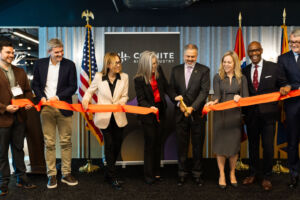A few short years ago, when Arizona’s residential market was really cooking, Charles Miscio was getting his teeth cleaned when his dental hygienist made an ominous comment: She owned eight houses and was renting them out to investors, speculators and anyone in between.
“It seems like everyone got caught up in that irrational thinking,” says Miscio, a senior vice president at Colliers International, who has more than 20 years of experience in the Arizona real estate market. “The train had left the station and no one thought it would stop. Well, it took some major missteps by Wall Street, but I think everyone can agree that money train has stopped.”
Fortunately, Miscio adds, Arizona did learn some lessons from past real estate market cycles, and things, especially in the commercial sector, should begin to look better following another nine to 12 months of uncertainty.
“Mid-2010 is what we as brokers are looking toward for recovery,” he says.
Right now, real estate executives and economic experts concede, a credit crunch, plummeting home values and corporate uncertainty have consumer confidence at historic lows. Companies aren’t expanding, leasing or buying more office space or hiring workers. Consumers, in turn, are wary about their jobs and have resisted spending on everything from new cars to health care.
It begs the question, though: Could anything have been done to prevent the current malaise?
Miscio says perhaps those with business ties to real estate (finance, mortgage, brokers, developers, etc.) should have watched the indicators better and kept a skeptical eye on the ever-outreaching building patterns. Developments continually moved to the periphery of the desert, making long commutes a norm for many and impacting the quality of life for many more. Exotic financial structures, which seemed too good to be true, also emerged. As it turns out, reality eventually set in.
“We just need to pinch ourselves once in a while,” the Colliers executive says.
Pat Feeney joined CBRE in 1985, and has ridden many waves in the market. Today, he is a senior vice president dealing mostly with industrial projects. He says current action in all sectors is down, and like, Miscio, he believes any improvement is closely tied to the replenishment of consumer confidence. That could take a while, as the Conference Board’s Consumer Confidence Index, a widely watched gauge of consumer spending, continues to fall to all-time lows. Currently, confidence in the economy is the lowest on record.
Feeney has seen these cyclical patterns before and believes, in the end, this too shall pass; it’s just a matter of time, although there are a few caveats in this current cycle.
“Historically, cycles come and go — the wounds heal and everyone goes back into battle,” he says, adding that past cycles were always followed with an “oomph factor.” That “oomph” was the Internet and tech boom earlier this decade, and the housing boom of the mid-2000s.
“Where is that next oomph?” Feeney asks, citing comments made by an economic analyst at a national economic strategy session.
“…it took some major missteps by Wall Street, but I think everyone can agree that money train has stopped.” — Charles Miscio, Colliers International
“This dramatic improvement also needs to be worldwide, since all of our economies are tied together. I agree with the cyclical thought process; I just think this one will take longer. I just don’t know how long.”
Several things from past booms are playing a huge role in the current bust. A run-up in the cost of land over the past decade held the lid on the market, as did escalating construction and material costs. Some key zoning changes, mostly around Sky Harbor International Airport, have also equated to a real estate industry that could be much worse off.
“This time around, there wasn’t unbridled and uncontrolled activity,” Feeney says. “This was more economically controlled and driven.”
Like many, Feeney remains bullish on Phoenix. People will always want to escape the inclement areas of the U.S. and the congested and strange factor of California. Arizona is a great place to live and affordable housing, one way oranother, will return.
Jerry Noble, a first vice president at CBRE agrees: “Phoenix continues to grow and be a leader in U.S. growth. We have always seen dynamic employers looking for space in quality locations with an affordable work force. Our fundamentals just need to stabilize and we’ll get back to where we need to be.”



